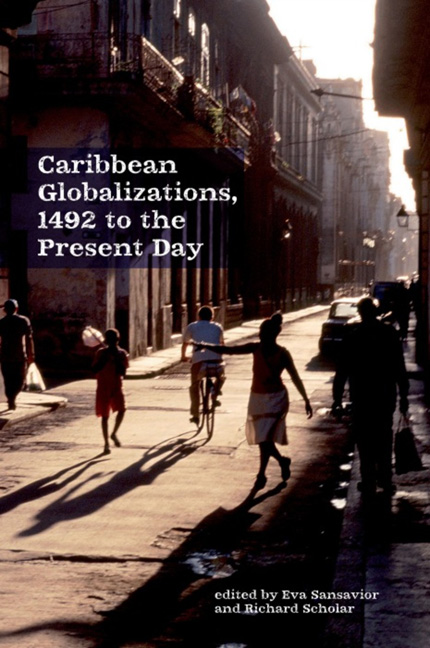Book contents
- Frontmatter
- Contents
- Contributors
- Prologue: Globalization, Globality, Globe-Stone
- Introduction
- I Globalizations in the Making
- 1 The Archipelago Goes Global: Late Glissant and the Early Modern Isolario
- 2 How Globalization Invented Indians in the Caribbean
- 3 Precocious Modernity: Environmental Change in the Early Caribbean
- 4 ‘Slaves’ in My Family: French Modes of Servitude in the New World
- 5 Paradoxical Encounters: The Essay as a Space of Globalization in Montaigne's ‘Des Cannibales’ and Maryse Condé's ‘O Brave New World’
- II The Complex Present
- Acknowledgements
- Index
4 - ‘Slaves’ in My Family: French Modes of Servitude in the New World
from I - Globalizations in the Making
- Frontmatter
- Contents
- Contributors
- Prologue: Globalization, Globality, Globe-Stone
- Introduction
- I Globalizations in the Making
- 1 The Archipelago Goes Global: Late Glissant and the Early Modern Isolario
- 2 How Globalization Invented Indians in the Caribbean
- 3 Precocious Modernity: Environmental Change in the Early Caribbean
- 4 ‘Slaves’ in My Family: French Modes of Servitude in the New World
- 5 Paradoxical Encounters: The Essay as a Space of Globalization in Montaigne's ‘Des Cannibales’ and Maryse Condé's ‘O Brave New World’
- II The Complex Present
- Acknowledgements
- Index
Summary
If I said that an ancestor of mine was once described by the French governor of Canada as one of a group of ‘slaves fairly sold’—that I am, in some sense, the descendant of a ‘slave’—you might assume that I am at least partly of African origin. (Barring any surprises, I am not.) So closely are slavery and race associated in the Atlantic world that it is almost impossible to separate the two, and rightly so. We are all heirs to a decision made in the late seventeenth century: the new forms of slavery in the New World would almost entirely associate slavery with African origins. Neither Europeans nor Native Americans would be slaves. The overwhelming weight of history demands that we never pretend otherwise. To look further back, or into the margins—where servitude and race may part company or enter into far more ambiguous relations—is to risk the appearance of relativizing the enslavement of millions of Africans. Such is not my intention.
In a recent issue of the New York Review of Books, the historian David Brion Davis wrote:
If I were to ask most Americans what comes to mind in response to the words ‘slave’ and ‘slavery’, I would probably get an image of an African-American picking cotton in Mississippi or Africans being jammed into the hold of a slave ship. But if an Englishman had been asked the same question in 1670 or 1710, he would almost certainly have referred to fellow white countrymen who had been seized on the English coast or on ships by Barbary corsairs and transported to Muslim North Africa for heavy labor or sometimes ransom. (Davis, 2009: 72)
Davis goes on to write: ‘In view of the gradual disappearance of slavery and serfdom in Western Europe in the late Middle Ages, it is easy to forget that free labor was virtually unknown in the rest of the world during most of human history’. To which I would add: certainly, but it was nonetheless easy enough for the Europeans who had made servitude disappear from their home territories to ‘remember’ and recreate it soon after they got to the New World.
- Type
- Chapter
- Information
- Caribbean Globalizations, 1492 to the Present Day , pp. 105 - 126Publisher: Liverpool University PressPrint publication year: 2015



